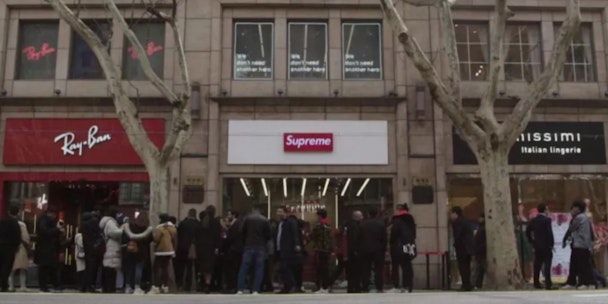Supreme New York files lawsuit against Supreme Italia for counterfeit stores in China
Supreme New York has taken legal action against Supreme Italia, a counterfeit business in China after the latter opened a physical store in Shanghai.

It accused Supreme Italia, of defrauding Chinese consumers and misleading the public. Photo: NOWRE.
In a letter published on March 15, four days after Supreme Italia’s store opened in Shanghai on the popular shopping strip of Huaihai Zhong Lu, Supreme New York said it has officially sought legal support from the Chinese government in its trademark infringement action.
It accused Supreme Italia of defrauding Chinese consumers and misleading law enforcement, reporters, and even global companies like Samsung by setting up the copycat retail store.
Samsung China had announced a collaboration with Supreme Italia in 2018, which was quickly refuted by Supreme New York. The Korean business axed the partnership with Supreme Italia in February.
Cybersquatting is rampant in China as brands are quick to register corporate names and copyright the visual identities of any foreign brands rumored to be coming to the country. That means Supreme Italia owns the rights to sell Supreme branded products in China as Supreme New York does not have a presence in the country.
While it remains to be seen if Supreme New York will succeed with its lawsuit, there is a glimmer of hope for the company. In recent years, the Chinese government has become pro-patent as they feel that intellectual property protection is key to the success of the country’s homegrown global brands.
Danish toymaker Lego succeeded in its first copyright competition case in China in 2017 when the Shantou Intermediate People’s Court ruled in its favor after it found two Chinese companies copying the packaging and logos of Lego products.
The next year, the brand won another case when a court ruled that four companies had “infringed multiple copyrights of the Lego Group and conducted acts of unfair competition by producing and distributing Lepin building sets”.

